Last chapter of Science Tales. The summing-up chapter. This is the beta version, so feel free to add comments and corrections.
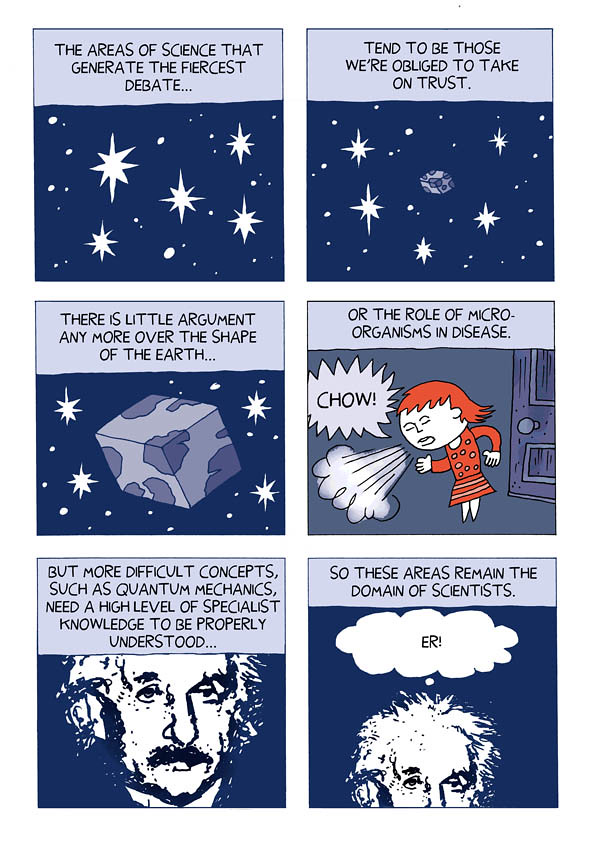
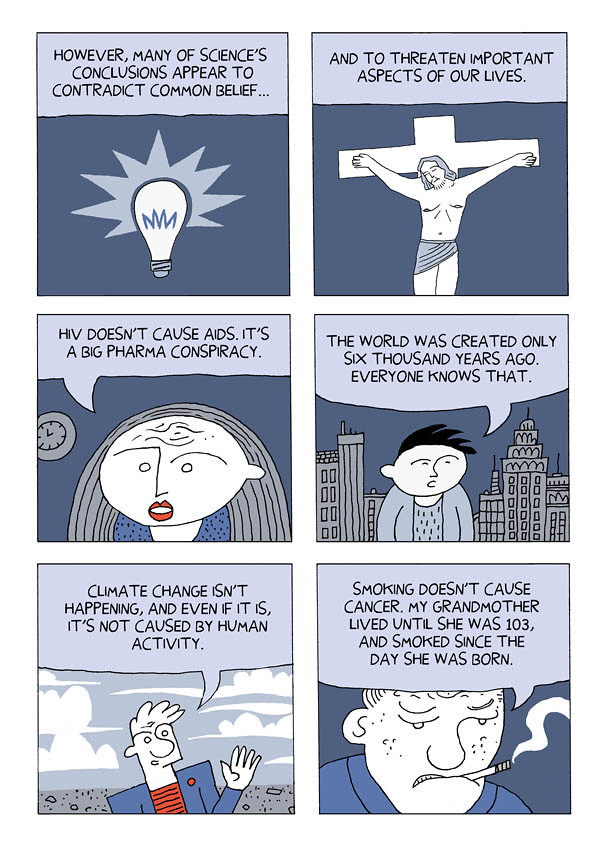
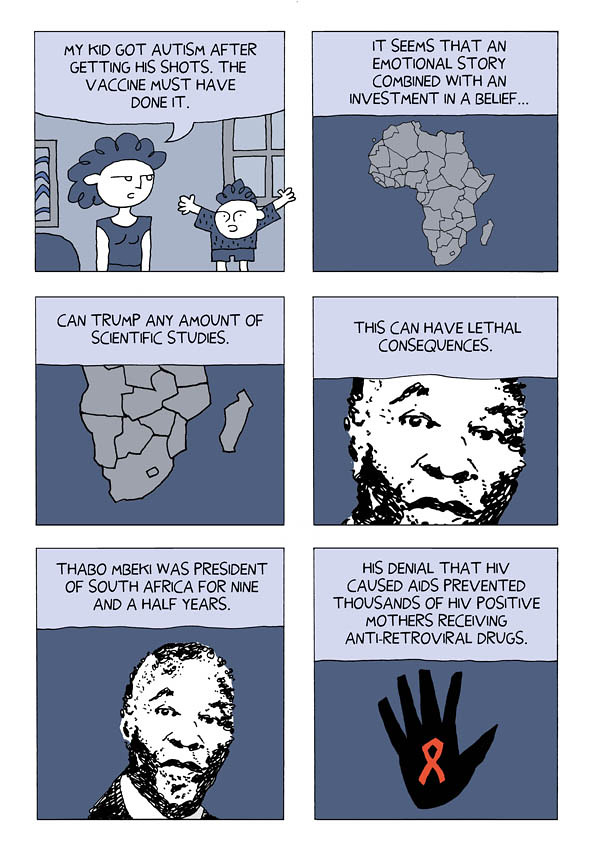
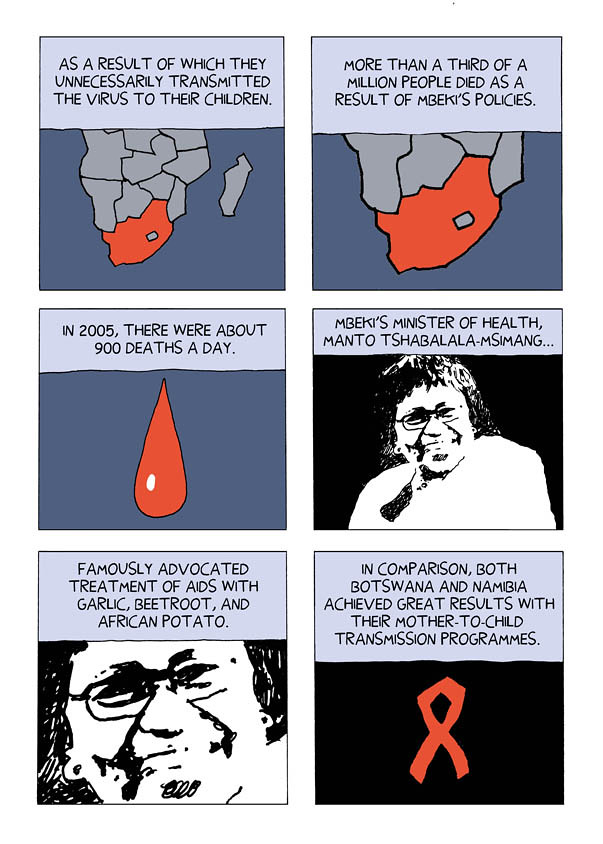
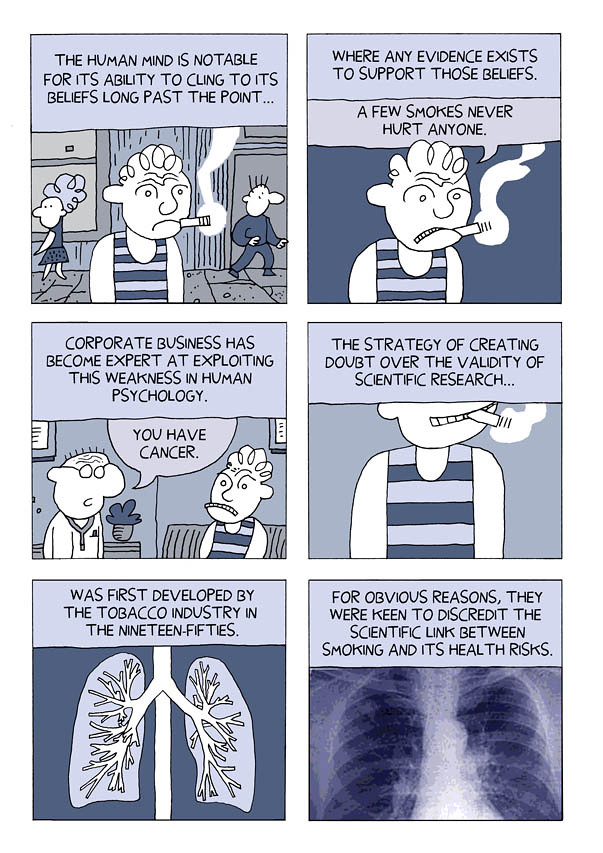
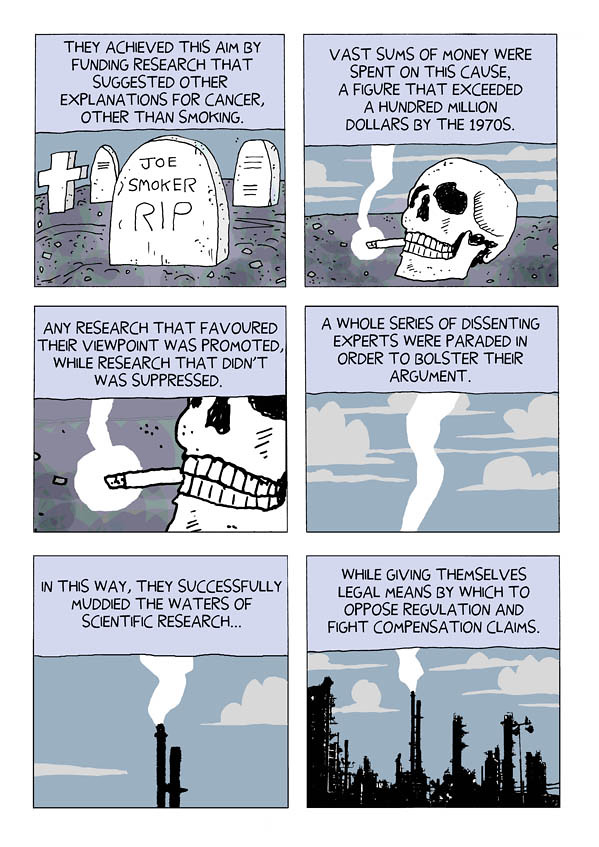
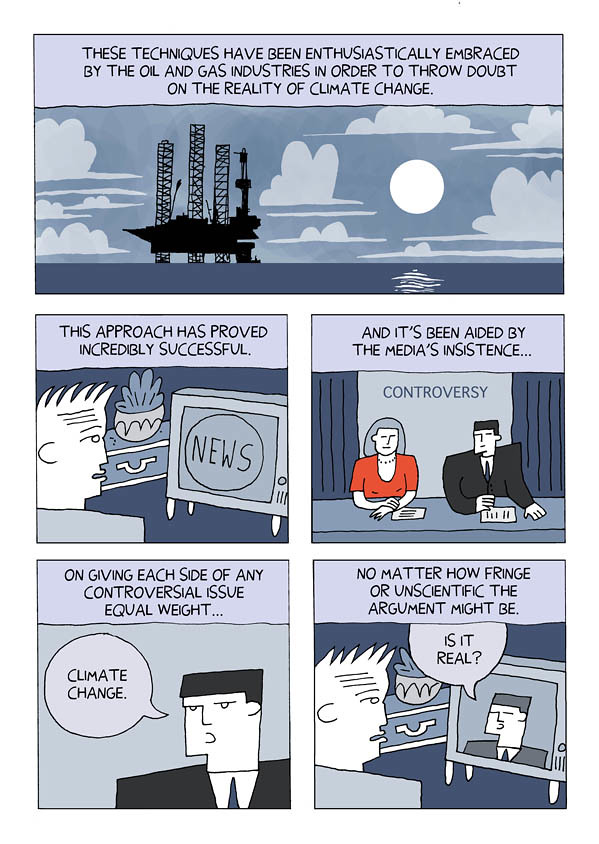
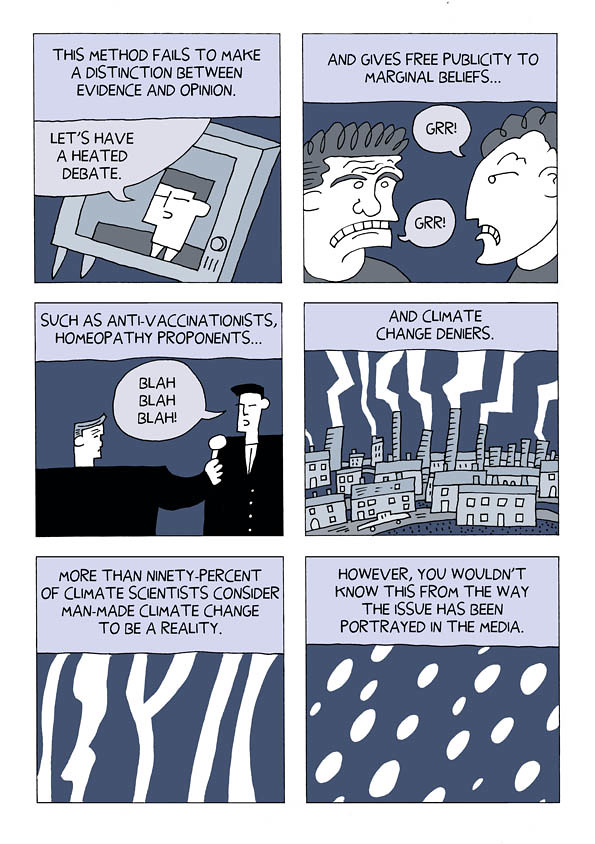
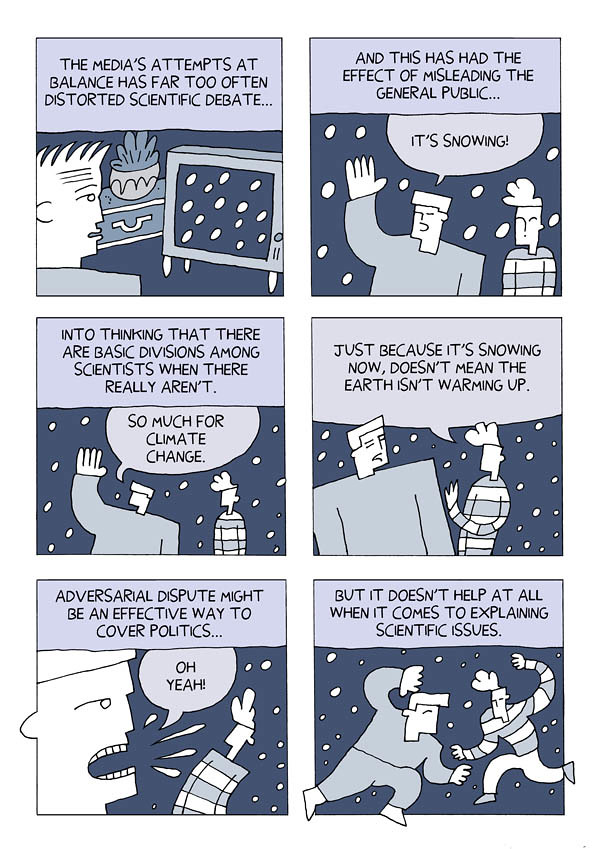
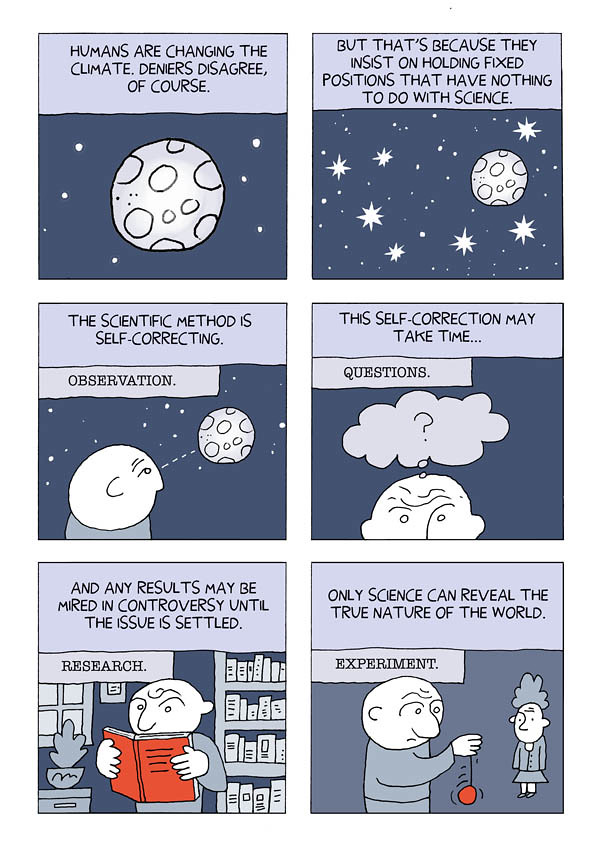
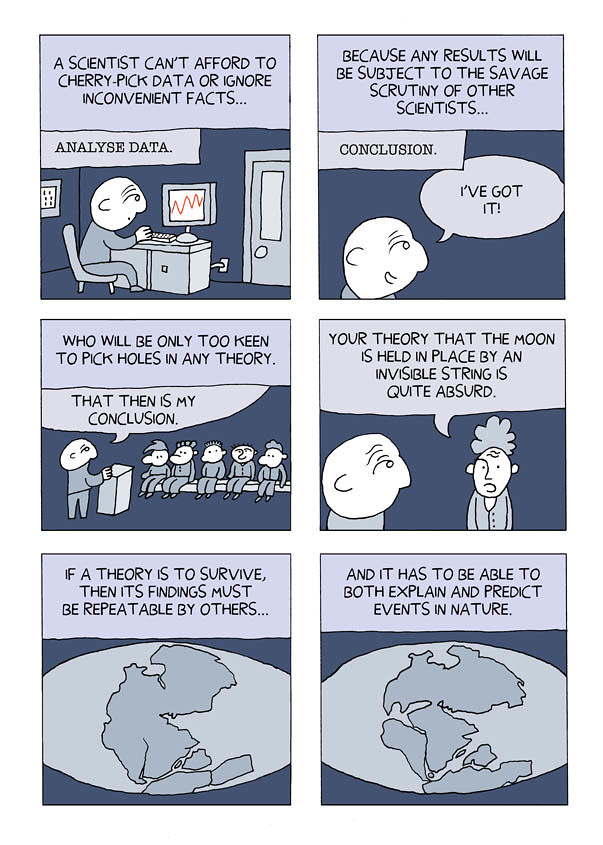
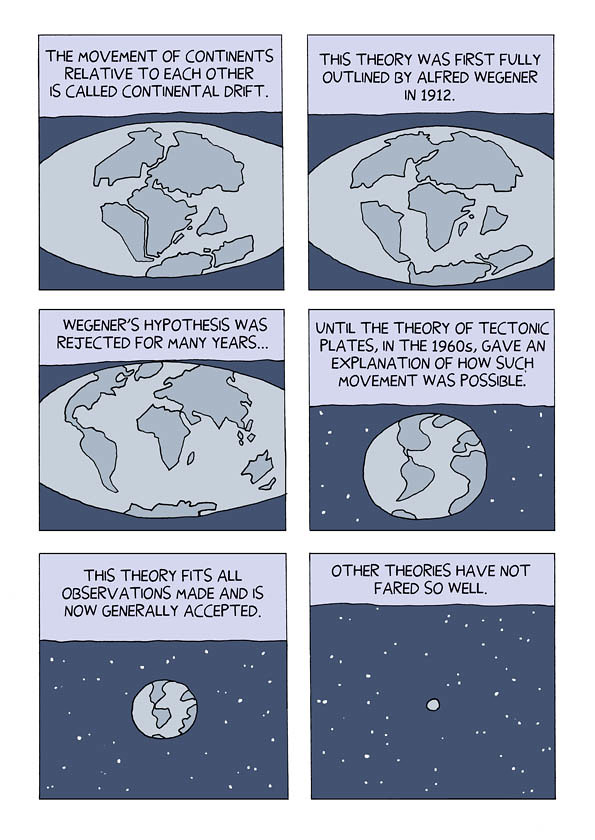
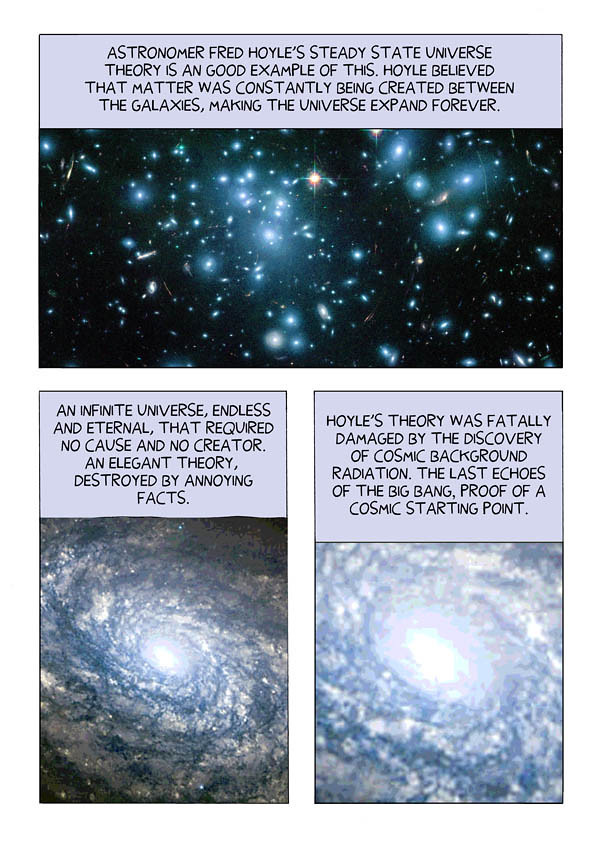
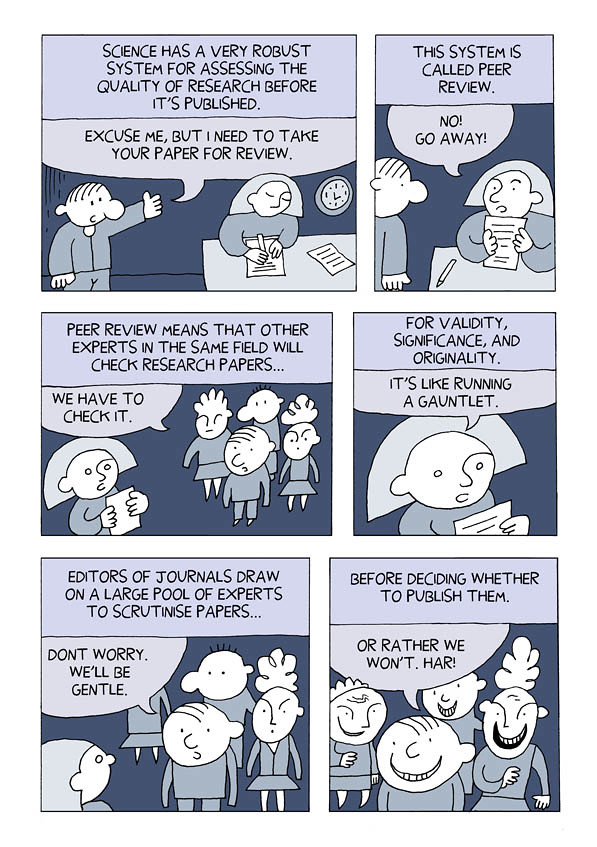
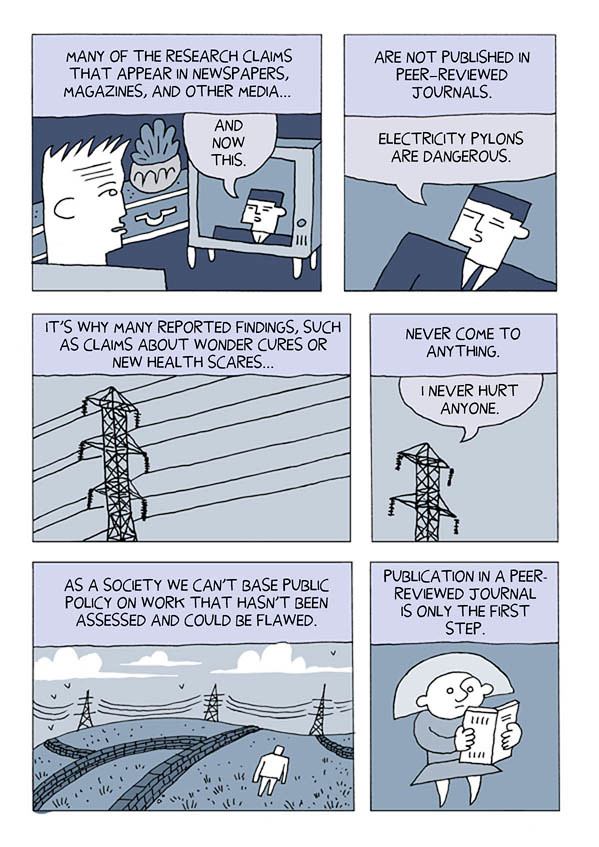
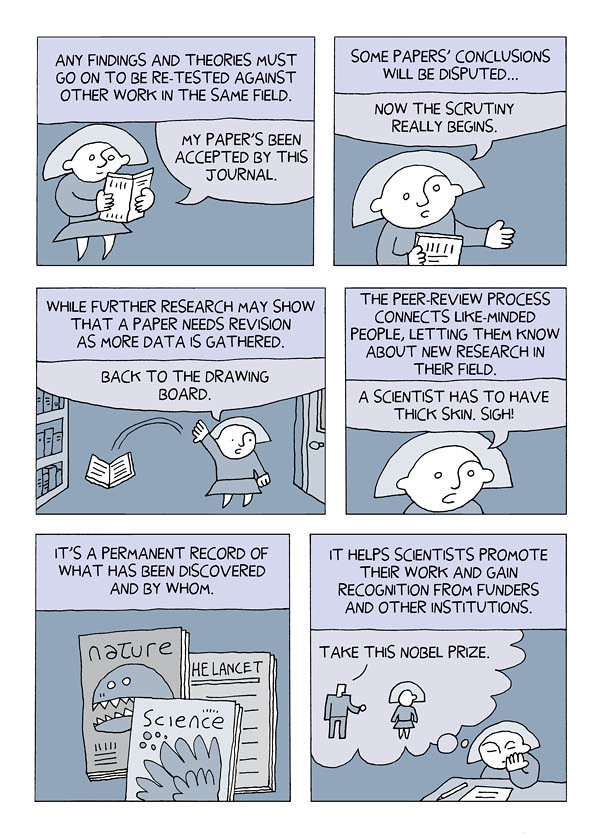
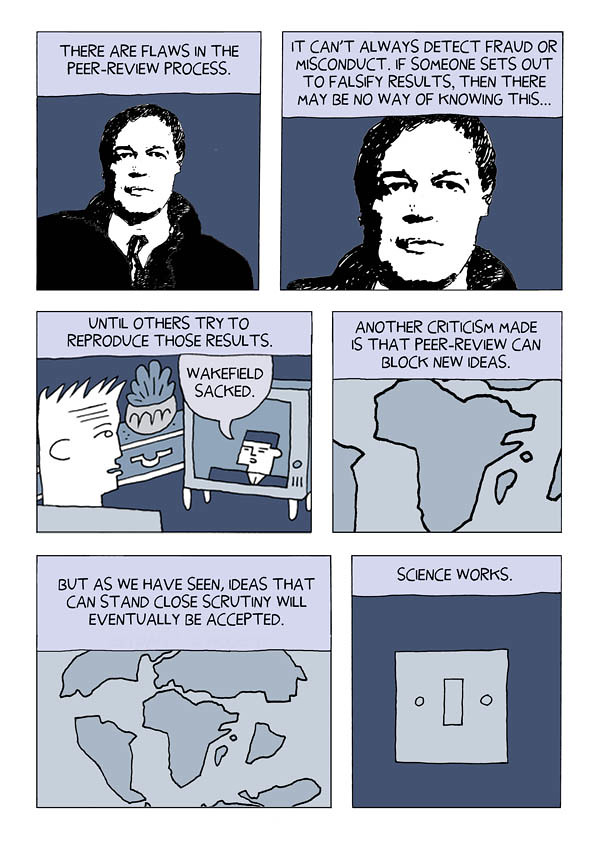
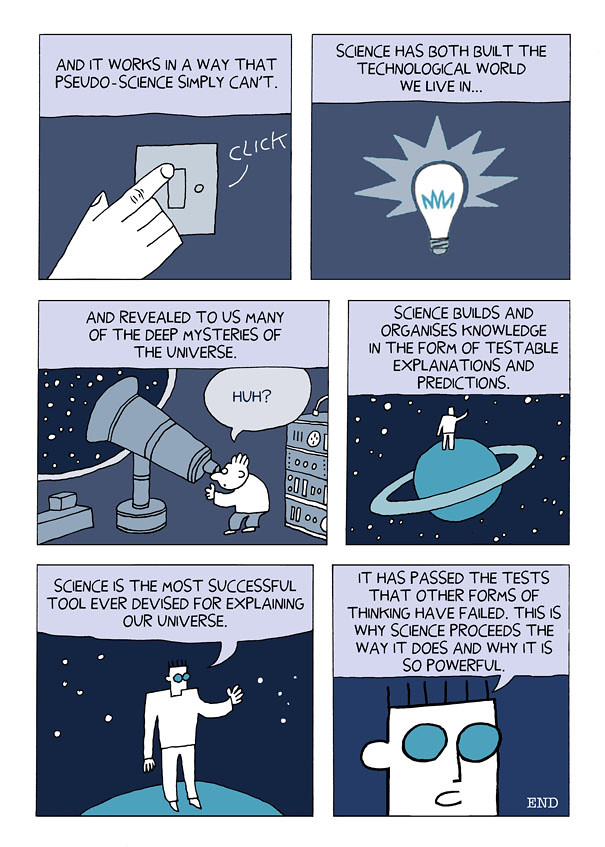
A Few References
Article on how big business twists science fro its own ends. When science is hidden behind a smokescreen.
On media. Science and truth have been cast aside by our desire for controversy.
'Mbeki Aids denial 'caused 300,000 deaths'.
All about Continental drift.
Sense About Science PDF about peer-review and the scientific process..


















A Few References
Article on how big business twists science fro its own ends. When science is hidden behind a smokescreen.
On media. Science and truth have been cast aside by our desire for controversy.
'Mbeki Aids denial 'caused 300,000 deaths'.
All about Continental drift.
Sense About Science PDF about peer-review and the scientific process..
Amazing! So elegantly done! Keep it up, good sir.
ReplyDeleteVery uncomfortable with this one…I think that what you are presenting is an argument that contains its own strong biases. Treating personal pseudo-scientific beliefs as superstitions or ignorance or the results of corporate manipulation doesn't really explain *why* people hold these beliefs.
ReplyDeletePeople don't have simple relationships with science, or with the way that science is presented or used for political or social gain. And while I do fundamentally agree with you, I think you're portrayal of the actual workings of these things is verging on scientism.
Personally, in the field that I'm in, I would no more support the conclusions of the average scientist than I'd play Russian roulette. Cultural biases (and pecuniary interests) have completely overwhelmed the somewhat fragile science behind it all. Most scientists fail to be as scrupulous as they should be (see Feynman's famous cargo cult science speech), science is presented as fickle and contradictory in the newspapers, and people have lost a lot of confidence in it as a result.
In a way, they are right to do this. It's not their fault that they don't feel they can trust science. But saying that they're just ignorant or easily misled doesn't fix it or really address the issues here. You can only fix it by doing science better.
Please get this book out soon. I want to give you money for it.
ReplyDeletestobiepole, what do you mean by scientism? I've seen this word used as saying you shouldn't have blind faith in science, or science is just like religion. If you take it to mean that then I would have to disagree, and I think the author would too.
What he just explained here is that nothing is taken on faith. We observe and gather empirical evidence of our ideas, see that they hold up, and others check our work. How else can you know something is true or just made up and false?
What the author also points, as Stephen Hawking says, science wins because it works. What other method of knowing has given us anything like what science has? This guy also said something similar.
I can understand the criticism above, but I enjoyed it greatly. Perhaps one aspect that went unmentioned & alludes to the above view is the influence on public views that social media such as Facebook has had on presenting unscientifically rigorous views as holding equal validity or dispensing unverifiable / counter factual 'propaganda' to a wider willing or unknowing audience.
ReplyDeleteThe reasons behind this are varied & probably a strip in itself!
Okay, scientism. Daryl says that 'Only science can reveal the true nature of the world'. That's scientism. How is the claim testable or provable? Where is the empirical evidence to support this claim? There could be other ways that we simply haven't figured out; sometimes relying on arbitrary chance will produce the 'correct' result, whether that be praying or flipping a coin. It's a statement of religious belief, of a kind of faith, rather than rational empirical analysis.
ReplyDeleteTo do science properly you need to understand what science can't do as well as what it can do. Science intrudes too far into the social fields for my own liking, for example. Climate change does not 'prove' the need for economic austerity measures, for example. Lots of science of the kind reported in the papers has more to do with bourgeois morality than anything else.
I should that I'm also very uncomfortable with the examples Daryl has used. Scientists tend to be middle-class, people who have faith in science likewise. I am uncomfortable with references to third-world superstition and working-class apathy…sadly, science has too often been used to bolster authority rather than to question it.
The scientific method is what your questioning, & in that respect I think that could've been made clearer in the strip maybe,as 'Science' is really the currently help position based on use of the methodology.
ReplyDeleteI don't think using the term 'science' however, would confuse most people that he's talking about the 'social sciences' or the use of findings to influence markets for political ends. In that respect I think you're asking questions that lie beyond the strips focus?
Excellent.
ReplyDeleteWell done, Darryl. Congratulations.
ReplyDeleteFantastic and clear summary. I'll be recommending this book to all my friends and family who still cling onto pseudo-scientific beliefs. Well done Darryl!
ReplyDelete"both... while..."?
ReplyDeleteI love the pull-back-and-transform technique, like joe Smoker's cigarette smoke turning into smoke from the oil platform, and the snow on the TV turning into real snow.
ReplyDeleteExcellent work, Darryl. Clear and concise, it gets the right points across. I hope it's OK that I included a snippet with my mention and link on my website.
ReplyDeleteCan science explain the full-on dude crush I have on you?
ReplyDeleteSpelling check? 3rd from last block... Organizes / Organises.
ReplyDeleteHi SWanders
ReplyDeleteIt's spelt correctly if you're a Brit. Which I am.
Darryl
Frame 15:
ReplyDeleteCan trump any NUMBER of scientific studies.
OR
Can trump any AMOUNT of scientific STUDY.
Great chapter.
Hugs, Dan.
Fabulous
ReplyDeleteIt's a nicely done piece but not very objective, I'm afraid. It resonates of the same type of religious absolutism about science theory that have kept society and human curiosity in dark ages.
ReplyDeleteAs a case in point, though cosmic background radiation can be assumed to indicate a beginning point to the universe, it can also indicate an emanation from the Aether that Fred Hoyle suggested was the source of continuous manufacture of matter in a growing universe. Science locked itself into Big Bang prematurely without remaining open to viable alternative probabilities.
Most discoveries since then, such as accelerated expansion, suggest Steady State to remain a viable option. But science won't have it anymore. Even though science rejected the Aether, they went on to adopt other "invisible" constructs such as Dark Matter and Dark Energy when evidence suggested there must be something invisible to us that is acting on the universe.
Thus science has effectively re-adopted the Aether but applied new names to it in order to cover its tracks and shame. Mainstream science will never admit that DM and DE effectively serve the same functions as Aether. Science has become as self-dogmatic as the religious absolutism it rightly criticizes.
I enjoyed the look of this piece very much but I respect scientific curiosity too much in order to be wooed by the writing here. Science, like all other human constructs, is susceptible to human bias and manipulation. It seems important that we remain aware of this in order to be as objective as humanly possible about our world.
This is nicely done!
ReplyDeleteBut I have to say why I don't put my faith in scientism. Science does not answer all the questions of the universe, nor give comfort for the future. Diseases go uncured, poverty goes unchecked, dictatorships do not topple, and serious religious questions go unanswered. Why put such faith in "science"? What science can do, however, is make our world a better place (if we let it.)
Nice, but you're confusing the word Theory with Hypothesis at some points.
ReplyDeleteQuick note:
ReplyDeleteIn the sub-heading of your blog (underneath Darryl Cunningham Investigates), you have misspelled "cartoonist" as "cartonist."
Thank you for writing this beautiful piece.
> ... you have misspelled "cartoonist" as "cartonist."
ReplyDeleteMaybe he just really likes boxes? ;-)
Linked to you to help spread the good word.
Wonderful, Daryl. I love your work.
ReplyDeleteIs there a superfluous "other" in the opening panel of frame 15, the panel with the tombstone?
"...other explanations... other than smoking."
Perhaps just remove the first "other"?
Interesting assertion, but you may want to address a couple of points:
ReplyDelete(1) "Science" is done by scientists. These are as bribe-able as any other humans, and are fallible. Indeed, history shows us science reversing itself many more times than results have stood the test of time.
(2) Your "everything must be vetted by science" approach will create a de facto authoritarian system, based on whatever the powers that be define as science. If they lose control, they will inundate you in research findings and dare you to sort through them all.
(3) "Science" is not absolute. We do not know the pre-existing state of the universe before matter and energy. We do not know the origin of existence, and many other things. Perhaps we should leave some social mechanisms in place instead.
I realize that you have designed this article for the slightly-above-average person who wants something to cling to in life, for meaning. I don't disagree that what they cling to should be logical. However, I think you are offering a false god here, and will end up leading them to a similarly bad fate as that which awaited other false god cults.
Look at this. When could we think that a comic could generate such a deep debate? Congratulations! I love the way you argument with panels. I only wanted that you didn't use any photo on it. We can't ever be satisfied, I know. Hail to the science of comics and the comics of science.
ReplyDeleteAwesome post. Loved it! :)
ReplyDeleteThank you so much for this. I shared it with those I am connected so hopefully some of them will learn something. I know I did.
ReplyDeleteHi Darryl!
ReplyDeleteI read you long time.
You did a really great work. I like it very much. I really think that this is perfect way to explain how science works.
Will you allow me to translate it to Russian and use it in my blog with link to your blog? Surely I will put you name on top.
If this is just the last chapter, I can't wait to see the whole book. Excellent.
ReplyDeleteThanks, Darryl! Great work! :)
ReplyDeleteHi Darryl!
ReplyDeleteThere is a Russian version at
http://flavorchemist.livejournal.com/41076.html
Thank you!
Sorry, wanted to say "thank you". Link in the post, of course.
ReplyDeleteThis is great. I enjoyed the presentation, and how much debate it's stirred in the comments. As a storyteller, I found it particularly salient where you spoke to how much more easily people are swayed by emotion than reason, and how equal time for competing stories isn't always appropriate. I wish more people recognized those points.
ReplyDeleteThanks for this! I'll be sharing.
How am I, a nonscientist, supposed to know which statements are scientifically sound, and which are influenced by outside parties?
ReplyDeleteWhen I was young, I was told that CFCs were destroying the ozone layer. I was told that greedy corporations wanted to keep using CFCs because they were cheap. It turns out that by banning CFCs big corporations were able to outlaw legacy products, and force companies to buy new non-CFC products at a higher price. What am I to make of this?
It seems you are admitting that there is more to what appears in scientific journals than the raw pursuit of knowledge. Corporate and political influence plays a role. How do I know which science is "pure?"
This is a great news that i must share with you all i have been looking for a way to break into my wife's phone because she has a pass-code on her phone and always receiving late night calls and text messages i have been suspecting her for past 1 year then i contacted this hacker named ALBERT who helped me hack into her phone and got me results under 24 hours he got me results of her call logs, text messages and even deleted text messages i was so happy to find out the truth about my wife i never knew she was a big time cheat until the HACKER (Albert) helped me, his prices are affordable contact him if you want to know more about your spouse and your relationship state and other hacking/IT services. Email. Theredhackergroup@gmail.com whatsapp/Text no: +1 571 318 9498
ReplyDelete